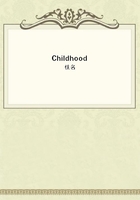
第17章
"I wish you could have seen how moved he was when I told him that he might look upon the 500 roubles as a present! But the most amusing thing of all is this bill which he has just handed me. It is worth seeing," and with a smile Papa gave Mamma a paper inscribed in Karl's handwriting. "Is it not capital? " he concluded.
The contents of the paper were as follows: [The joke of this bill consists chiefly in its being written in very bad Russian, with continual mistakes as to plural and singular, prepositions and so forth.]
"Two book for the children--70 copeck. Coloured paper, gold frames, and a pop-guns, blockheads [This word has a double meaning in Russian.] for cutting out several box for presents--6 roubles, 55 copecks. Several book and a bows, presents for the childrens--8 roubles, 16 copecks. A gold watches promised to me by Peter Alexandrovitch out of Moscow, in the years 18-- for 140 roubles. Consequently Karl Mayer have to receive 139 rouble, 79 copecks, beside his wage."
If people were to judge only by this bill (in which Karl Ivanitch demanded repayment of all the money he had spent on presents, as well as the value of a present promised to himself), they would take him to have been a callous, avaricious egotist yet they would be wrong.
It appears that he had entered the study with the paper in his hand and a set speech in his head, for the purpose of declaiming eloquently to Papa on the subject of the wrongs which he believed himself to have suffered in our house, but that, as soon as ever he began to speak in the vibratory voice and with the expressive intonations which he used in dictating to us, his eloquence wrought upon himself more than upon Papa; with the result that, when he came to the point where he had to say, "however sad it will be for me to part with the children," he lost his self-command utterly, his articulation became choked, and he was obliged to draw his coloured pocket-handkerchief from his pocket.
"Yes, Peter Alexandrovitch," he said, weeping (this formed no part of the prepared speech), "I am grown so used to the children that I cannot think what I should do without them. I would rather serve you without salary than not at all," and with one hand he wiped his eyes, while with the other he presented the bill.
Although I am convinced that at that moment Karl Ivanitch was speaking with absolute sincerity (for I know how good his heart was), I confess that never to this day have I been able quite to reconcile his words with the bill.
"Well, if the idea of leaving us grieves you, you may be sure that the idea of dismissing you grieves me equally," said Papa, tapping him on the shoulder. Then, after a pause, he added, "But I have changed my mind, and you shall not leave us."
Just before supper Grisha entered the room. Ever since he had entered the house that day he had never ceased to sigh and weep--a portent, according to those who believed in his prophetic powers, that misfortune was impending for the household. He had now come to take leave of us, for to-morrow (so he said) he must be moving on. I nudged Woloda, and we moved towards the door.
"What is the matter?" he said.
"This--that if we want to see Grisha's chains we must go upstairs at once to the men-servants' rooms. Grisha is to sleep in the second one, so we can sit in the store-room and see everything."
"All right. Wait here, and I'll tell the girls."
The girls came at once, and we ascended the stairs, though the question as to which of us should first enter the store-room gave us some little trouble. Then we cowered down and waited.